Author: everbella
18 Health Hacks That Actually Work
There are a lot of health hacks out there on the internet. A lot of them don’t work, and some of them are just plain dangerous. So, how do you know which ones to trust?
Well, usually if it sounds too good to be true – it is. Good health does take some work, but once you get into the groove of things and begin seeing the results, I think you’ll start to really enjoy what once looked like a chore.
In this blog post, I’ll go over 18 health hacks that actually work! Plus, I’ll include why they’re so important so that you can be motivated to get started right away!
So, without further ado…
18 Health Hacks That Actually Work
Okay, maybe these aren’t true “hacks”. I mean, you’ve likely heard them before and some of them are easier said than done. But I want to remind you of the importance of taking the tried and true advice of managing your health in these ways.
So whether you try all of them or one of them, just know they’re making a big impact!
Hack #01: Eat More Fiber
Most people know that it’s important to eat a healthy diet, but they may not be aware of the importance of fiber.
Fiber is a type of carbohydrate that the body cannot digest, and it is found in plant-based foods such as fruits, vegetables, and whole grains. Though it may seem like something that would just pass through the body, fiber actually has a number of important health benefits.
Fiber helps keep the digestive system healthy by promoting regular bowel movements and preventing constipation. It can also help lower cholesterol levels and reduce the risk of heart disease.
In addition, fiber helps keep you feeling full after eating, making it an important tool for weight loss and weight management. So next time you’re looking for healthy food to add to your diet, make sure to include plenty of fiber-rich options.
Hack #02: Drink More Water
Water is essential for life, and that includes human life. Every cell in the body needs water to function properly, and that’s why it’s important to make sure you’re drinking enough water every day.
Drinking adequate amounts of water helps keep your energy levels up, your skin looking healthy, your digestion moving smoothly, and your whole body functioning at its best. Plus, drinking plenty of water is a great way to prevent headaches and other illnesses.
So next time you reach for a snack or a cup of coffee, think about reaching for a glass of water instead. Your body will thank you for it!

Hack #03: Get Enough Sleep
Most people know that getting a good night’s sleep is important for overall health, but few realize just how essential sleep is for maintaining physical and mental well-being.
When we sleep, our bodies are able to recover from the day’s activities and repair any damage that has been done. This process is essential for promoting tissue growth and keeping our immune system strong.
In addition, sleep helps to regulate hormones and metabolism, which can impact everything from energy levels to weight. Furthermore, research has shown that sleep deprivation can lead to mood swings, irritability, and even depression.
Hack #04: Exercise Regularly
Exercise helps improve cardiovascular health, boost energy levels, and improve flexibility and balance. Additionally, regular exercise has been shown to reduce the risk of chronic diseases such as obesity, heart disease, stroke, and type 2 diabetes. It can also help to improve mental health, easing symptoms of anxiety and depression.
Whatever your fitness goals may be, remember that exercise isn’t just good for your body – it’s also good for your mind and your overall health.
Hack #05: Eat More Protein
Protein is an essential part of a healthy diet, but do you know why?
Protein is important for your health because it helps your body repair and build new tissue, produces enzymes and hormones, and provides a source of energy. Without protein, your body wouldn’t be able to function properly. When you eat protein, your body breaks it down into amino acids, which are then used to build new muscle tissue, repair damaged cells, and produce enzymes and hormones.
Eating protein also helps regulate blood sugar levels and provides a slow release of energy, which is ideal for long-lasting energy production.
Hack #06: Cut Back on Sugar
Sugar is often seen as a healthy indulgence, but the truth is that it can have serious consequences for your health.
Consuming too much sugar can lead to weight gain, type 2 diabetes, and heart disease. It can also cause inflammation throughout the body, which can contribute to a variety of health problems.
For these reasons, it’s important to cut back on sugar if you want to stay healthy. There are a number of ways to do this, such as choosing foods that are lower in sugar, eating more whole foods, and limiting processed foods. You can also add more sweetness to your diet with natural sweeteners like honey or maple syrup.
By making these simple changes, you can drastically improve your health and well-being.
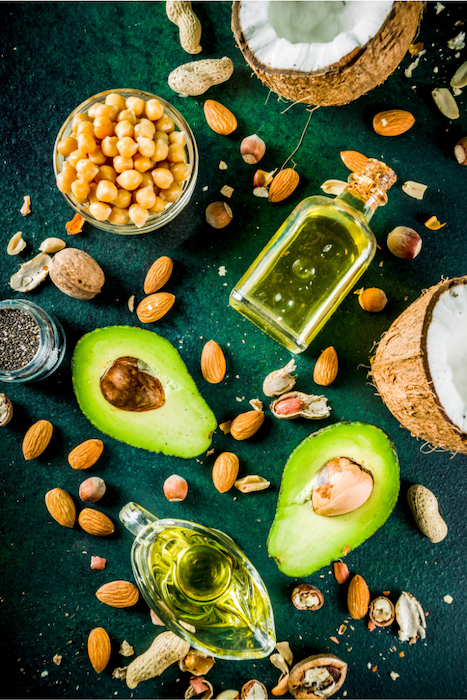
Hack #07: Eat More Healthy Fats
Many people mistakenly believe that all fats are bad for their health. However, there are actually two different types of fats: healthy fats and unhealthy fats.
Unhealthy fats, such as trans fats and saturated fats, can raise your cholesterol levels and increase your risk of heart disease.
On the other hand, healthy fats, such as unsaturated fats and omega-3 fatty acids, can actually improve your cardiovascular health.
In addition, healthy fats play an important role in brain development and help protect against memory decline. If you’re looking to improve your overall health, be sure to include healthy fats in your diet.
Hack #08: Avoid Processed Foods
It’s no secret that processed foods are bad for your health. They’re often high in sugar, salt, and unhealthy fats, and they can contain harmful chemicals and additives. Eating a diet full of processed foods can lead to weight gain, heart disease, and other serious health problems.
So why are processed foods so bad for you? One reason is that they tend to be high in calories but low in nutrients. This means that you’re getting a lot of empty calories from processed foods, which can lead to weight gain. Processed foods are also often high in sugar, which can cause blood sugar spikes and contribute to diabetes. And since they’re often high in salt, eating a lot of processed foods can lead to high blood pressure.
Eating a healthy diet is one of the best things you can do for your health. By avoiding processed foods, you can help keep your weight down, avoid diseases like heart disease and diabetes, and feel your best!
Hack #09: Get Enough Vitamin D
Vitamin D is essential for good health, but many people don’t get enough of it. This important vitamin helps regulate the absorption of calcium and phosphorus, two minerals that are essential for strong bones. Vitamin D also plays a role in immunity, and recent research has found that it may help to prevent certain types of disease.
While you can get vitamin D from foods like eggs and fatty fish, the best way to get enough is by supplementing. Even though you can get vitamin D from the sun, you’re putting your skin at risk at the same time. Too much sun exposure without sunscreen can drastically increase how fast your skin ages. It can also break down your collagen levels.
Protect your skin and get enough vitamin D with a reliable supplement that your body can actually absorb.
My friends over at Purality Health offer a vitamin D that can do just that. It also contains the one thing you need to make sure you’re taking with vitamin D if you want to avoid heart issues.
Hack #10: Avoid Alcohol
Most people are aware of the dangers of drinking to excess, but many don’t realize that even moderate drinking can have a negative impact on health.
Alcohol is a toxin that puts stress on the liver, kidneys and other organs. It can also contribute to weight gain, high blood pressure, and other health problems. For these reasons, it’s important to avoid alcohol or drink only in moderation.
There are also some benefits to be gained from avoiding alcohol. For example, you’ll have more energy, better skin, and improved sleep patterns. You’ll also save money and reduce your risk of developing cancer or other diseases.
So if you’re looking to improve your health, ditch the booze and feel the benefits!
Hack #11: Stand Up More

We all know that sitting down too much isn’t good for our health. But did you know that standing up more can actually have some pretty amazing health benefits?
For starters, standing up helps improve your circulation. When you’re sitting down, your muscles are relatively inactive, which can cause your blood to pool in your lower extremities. This can lead to fatigue, varicose veins, and other circulation problems. However, when you stand up, your muscles contract and help pump blood back up to your heart. This not only prevents circulation problems, but it also gives you more energy.
In addition to improving circulation, standing up also helps strengthen your bones and muscles. When you’re sitting down, there’s very little weight bearing on your bones, which can lead to osteoporosis and other problems. On the other hand, when you stand up, all of your weight is borne by your bones and muscles, which helps to keep them strong and healthy.
Additionally, standing up provides a gentle workout for your muscles, helping to keep them toned and prevent cramping.
So next time you find yourself sitting for too long, remember that it’s important to stand up and move around every so often
Hack #12: Take the Stairs
Taking the stairs may seem like a small thing, but it can have a big impact on your health.
For one thing, it’s great exercise. Just a few minutes of stair-climbing can get your heart pumping and your muscles working. It’s also been shown to boost brain power and improve memory.
Additionally, taking the stairs can help you stay at a healthy weight. And if you’re trying to lose weight, adding some extra stair-climbing to your daily routine can make a big difference.
If you’re faced with a choice between the elevator and the stairs, opt for the stairs and give your health a boost!
Hack #13: Park Farther Away
Most of us are guilty of it – driving right up to the door of our destination, even if there’s a perfectly good spot available a little farther away. But did you know that parking farther away from your destination can actually be good for your health?
Like opting for the stairs, walking even a short distance helps get your blood flowing and can increase your heart rate, making it a great way to add some extra activity to your day. And if you make a habit of parking farther away, you may be surprised at how much extra walking you end up doing over the course of a week or month.
Next time you’re looking for a parking spot, remember that the spot a little farther away just might be the best choice for you.
Hack #14: Drink Green Tea
Green tea is more than just a hot beverage – it’s also a health powerhouse.
Drinking green tea has been linked to a variety of health benefits, including reduced risk of cancer, heart disease, and stroke. Green tea is also a good source of antioxidants, which can help protect cells from damage and reduce inflammation.
In addition, green tea has been shown to boost metabolism and promote weight loss. If you’re looking for a healthy way to improve your overall well-being, be sure to add green tea to your diet.
Hack #15: Eat More Vegetables

Vegetables are an important part of a healthy diet, and there are many good reasons to eat more of them.
For one thing, they are packed with nutrients that are essential for good health. They also tend to be low in calories and fat, making them a great choice for people who are watching their weight.
In addition, vegetables are a good source of fiber, which can help to reduce the risk of heart disease and other chronic conditions.
And last but not least, eating more vegetables can help you cut down on unhealthy processed foods. Aim to eat at least five servings of vegetables per day for maximum benefits!
Hack #16: Eat More Fruit
Fruit is packed with nutrients that are essential for good health. Vitamins A and C, for example, help to keep your immune system strong, while B vitamins are important for energy production.
Fruit is also a great source of fiber, which helps keep your digestive system functioning properly. In addition, eating fruit has been linked with lower rates of heart disease and certain types of cancer.
Need a healthy way to boost your energy levels and protect your overall health? Eating more fruit is a great place to start!
Hack #17: Manage Your Stress
Stress is a normal part of life, and it can actually be beneficial in small doses. It can help us stay alert and motivated. However, chronic stress can take a toll on our physical and mental health.
When we’re under constant stress, our bodies go into “fight or flight” mode, which can lead to a host of problems, including high blood pressure, headaches, and difficulty sleeping.
Stress can also make us more prone to developing anxiety and depression. That’s why it’s so important to find healthy ways to manage your stress. Exercise, relaxation techniques, and spending time with loved ones are just a few of the ways that you can reduce stress levels.
By taking steps to manage your stress, you’ll be taking care of your overall health.
Hack #18: Eat Slowly
When it comes to eating, it’s not just what you eat that matters, but how you eat it.
Eating quickly can lead to overeating, as well as indigestion and other digestive problems. On the other hand, taking the time to savor your food can help you eat less and enjoy your meal more.
According to studies, it takes about 20 minutes for the brain to register that you’re full. If you eat too quickly, you may end up eating more than you need before you realize you’re full.
In addition, eating slowly gives your body time to absorb nutrients more effectively. When you chew your food thoroughly, your body is able to better break down the molecules and absorb the nutrients.
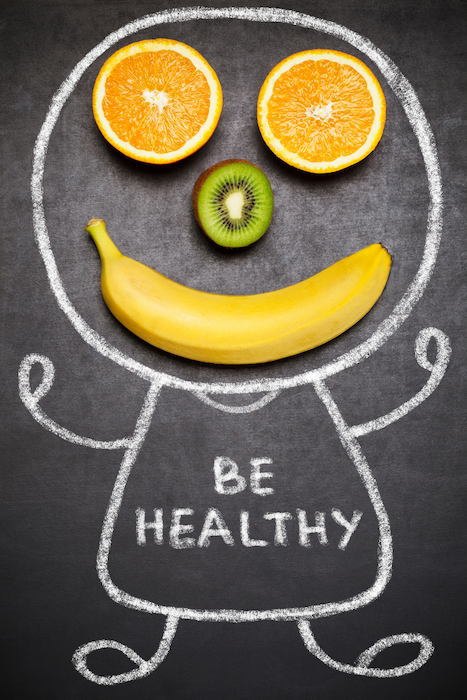
As a result, eating slowly can help you to get more out of your food and improve your overall health. So next time you sit down to eat, take a moment to savor your food and enjoy the experience of eating as well as the nourishment it provides.
These are just a few of the many health hacks that actually work. By following these tips, you can improve your overall health and well-being. So, what are you waiting for? Get started today!
Pumpkin Seeds: 6 Benefits Of Eating This Nutritious Seed
Most people think of pumpkins as nothing more than decorations for Halloween. However, these large orange fruits are actually a nutritional powerhouse. One of the most underrated features of pumpkins is their seeds.
These little seeds are packed with nutrients that offer a variety of health benefits. In this blog post, I’ll cover some of the key benefits of eating pumpkin seeds. I’ll also discuss how to incorporate them into your diet for the best results.
So read on to learn more about this amazing superfood!
1. Pumpkin seeds are a great source of protein
Pumpkin seeds are an excellent source of protein, providing around 7 grams per ounce!
Proteins are essential nutrients for the human body. They are the building blocks of muscle, skin, and other tissues, and they play a vital role in many metabolic processes. Proteins are made up of amino acids, and the body needs a steady supply of these to function properly.
In addition to providing the body with amino acids, proteins also help regulate hormone levels and promote cell growth. They are also involved in the transport of nutrients and other molecules around the body.
As you can see, protein is an important nutrient that plays many vital roles in the human body. So next time you’re looking for a boost, reach for a handful of pumpkin seeds!
2. They’re high in antioxidants
Did you know that pumpkin seeds are high in antioxidants?
Antioxidants are important nutrients that help protect the body from damage caused by free radicals. Free radicals are rogue molecules that can cause cell damage, leading to inflammation and disease.
Pumpkin seeds are a rich source of several different antioxidants, including vitamins A and C, beta-carotene, and lutein. These nutrients work together to neutralize free radicals and protect cells from damage.
So if you want to offer your body some protection, consider snacking on some pumpkin seeds!
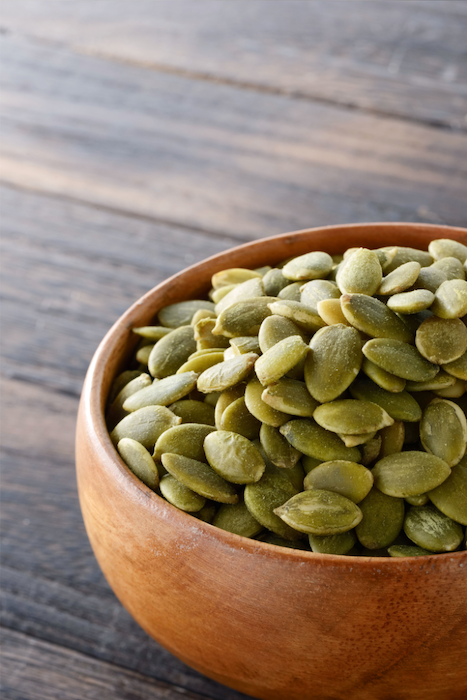
3. Pumpkin seeds are anti-inflammatory
Pumpkin seeds are a nutrient powerhouses. In addition to being a good source of protein and antioxidants, pumpkin seeds are also high in anti-inflammatories.
These compounds help reduce inflammation throughout the body, which can lead to a number of health benefits. For example, reducing inflammation can help improve joint health, lower blood pressure, and reduce the risk of chronic diseases.
Furthermore, the anti-inflammatory properties of pumpkin seeds may also help to improve cognitive function and promote brain health!
4. Pumpkin seeds are a good source of healthy fats and minerals
Pumpkin seeds are high in unsaturated fats, including omega-3 and omega-6 fatty acids. These fats are essential for maintaining cell membranes, keeping skin hydrated, and reducing inflammation.
Pumpkin seeds are also a good source of minerals, including zinc and magnesium. These nutrients are important for boosting immunity, maintaining bone health, and supporting nerve function.
5. They can help improve your cardiovascular health
While pumpkin seeds may be small, they pack a big punch when it comes to heart health.
Because pumpkin seeds are an excellent source of magnesium, they can help keep the heart rhythm steady and blood pressure in check.
In addition, pumpkin seeds’ rich antioxidant profile allows it to help protect against damage in the heart, staving off heart disease.
One study even found that eating pumpkin seeds daily can help lower LDL cholesterol levels!
6. Pumpkin seeds can help improve your blood sugar levels
Pumpkin seeds contain plant-based compounds that may help support blood sugar levels.
One study found that participants who ate pumpkin seeds had lower fasting blood sugar levels than those who didn’t eat them. Another study looked at the effects of pumpkin seed oil on people with diabetes. Participants who took pumpkin seed oil had better blood sugar control and less insulin resistance than those who didn’t take it.
Pumpkin seeds may also help reduce inflammation, which can play a role in the development of diabetes. While more research is needed, these studies suggest that pumpkin seeds may be beneficial for blood sugar control.
How to get more pumpkin seeds
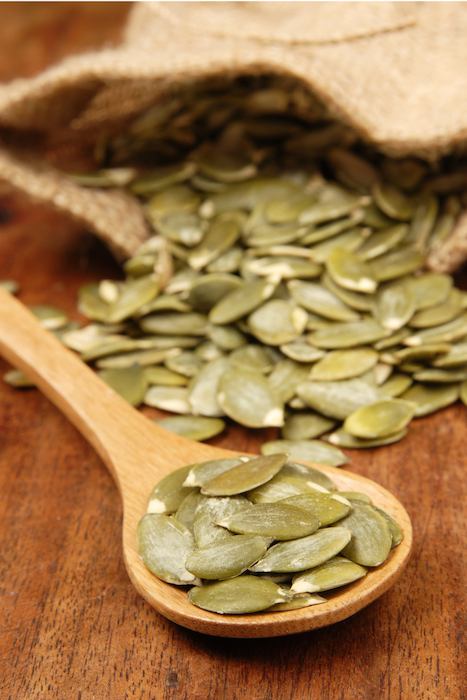
As you can see, there are many reasons to add pumpkin seeds to your diet. But how exactly do you do that?
Here are a few ideas:
– Add them to oatmeal or yogurt.
– Sprinkle them on top of salads.
– Make a trail mix with pumpkin seeds, dried fruit, and nuts.
– Use them in place of croutons in your soup.
– Bake them into bread or muffins.
– Or eat them as-is!
Another amazing way to get the health benefits of pumpkin seeds is through Complete Biotin Plus.
EverBella’s Complete Biotin Plus contains pumpkin seed oil, giving you a concentrated dose of pumpkin seed goodness.
To see what else Complete Biotin Plus contains, along with how these ingredients can benefit YOUR health…
Which Is Healthier: Coffee Or Tea?
When it comes to coffee or tea, there’s a lot of debate about which is the healthier drink. Some people swear by their morning cup of joe, while others can’t start the day without a hot cup of tea.
Which do you choose?
And do you know which is really better for you?
Let’s take a look at the facts!
What are the benefits of drinking coffee or tea?
When it comes to coffee or tea, both drinks offer a variety of health benefits.
Coffee is known for its high caffeine content, which can give you an energy boost and help you stay alert throughout the day. Tea is packed with antioxidants, which can help protect your body against disease.
Both coffee and tea also contain essential nutrients like potassium and magnesium that your body needs to function properly.
Tea
Black tea is rich in antioxidants, which can help protect your cells from damage. Regular consumption of black tea has been linked with lower risks of heart disease and stroke. In addition, black tea can help prevent cavities by reducing the growth of bacteria in the mouth. And if you’re looking to lose weight, black tea may be able to help. One study found that those who drank four cups of black tea a day for six weeks lost more weight than those who didn’t drink any tea at all.
Coffee
There are many health benefits to drinking coffee. For one, coffee is a good source of antioxidants. Coffee also contains caffeine, which can improve mental alertness and memory. In addition, coffee has been shown to reduce the risk of several chronic diseases, including heart disease, stroke, and type 2 diabetes. So if you’re looking for a healthy way to start your day, reach for a cup of coffee. You may be doing your body a favor.
Bottom line
So, which is the healthier drink?
Both coffee and tea have their own unique benefits, so it really depends on your individual needs. But it’s good to know that no matter which of these two you choose to put in your cup, it’s serving your health!
Does coffee or tea contain more caffeine?
Caffeine is a naturally occurring compound that can be found in both coffee and tea. It’s responsible for the stimulating effects of these drinks, and it can be anywhere from mild to dangerous, depending on how much you consume.
Tea contains significantly less caffeine than coffee. A typical cup of black tea has about half the caffeine as a cup of coffee. This means that tea won’t give you the same energy boost as coffee, but it’s less likely to cause side effects like jitters and anxiety.

Tea
The amount of caffeine in black tea can vary quite a bit depending on how it is brewed. For example, if you brew your black tea using boiling water, you’ll end up with a cup of tea that contains more caffeine than if you had brewed it using cooler water. In general, though, most cups of black teas will contain between 30 and 60 milligrams of caffeine – which is still less than what you’ll find in a cup of coffee.
Tea also contains an antioxidant called L-theanine, which stimulates the brain, while also promoting relaxation. This counters the jittery effect that coffee can bring, which is why tea can bring a more soothing energy boost then coffee.
So if you’re looking for a slightly caffeinated pick-me-up, black tea is a great choice. Just be sure to experiment with different brewing methods to find the perfect cup for your taste buds.
Coffee
Although the exact amount of caffeine varies depending on the type of coffee bean and the brewing method, a typical cup of coffee contains around 95 mg of caffeine. That’s about three times as much as a can of cola.
Caffeine is a stimulant that can have some positive effects, including increased alertness and improved cognitive function. However, it can also cause jitteriness, anxiety, and insomnia. For most people, moderate caffeine consumption is safe. However, pregnant women and people with certain medical conditions should limit their intake. So how much caffeine is in your cup of coffee? It depends on a number of factors, but you can be sure that it packs a punch!
Bottom line
Caffeine is a stimulant, which means it can improve mental alertness and memory. It can also help to reduce the risk of chronic diseases like heart disease, stroke, and type-II diabetes.
However, it can also bring about feelings of anxiety, jitters, while keeping you up at night. If you’re deciding between tea and coffee, it really depends on what kind of energy kick you’re looking for!
Which contains more antioxidants?
Antioxidants are important for many reasons. They help to protect cells from damage, neutralize free radicals, and reduce inflammation. As a result, antioxidants play a key role in maintaining health and preventing disease.
There are many different kinds of antioxidants, and they can be found in a variety of foods – like tea and coffee.
But does one contain more than the other?
Tea
There are many different types of antioxidants, but the ones found in black tea are some of the most beneficial.
The main antioxidant in black tea is called catechin, which is known for its ability to protect cells from damage. Catechin is also a powerful anti-inflammatory agent, making it beneficial for conditions like arthritis and asthma. Other antioxidants found in black tea include quercetin and epigallocatechin gallate (EGCG). Quercetin is known for its ability to reduce allergies and boost immunity, while EGCG has been shown to have anti-cancer properties.
In short, black tea is packed with antioxidants that can offer various health benefits!

Coffee
When it comes to antioxidants, coffee is one of the most potent sources around. There are several different types of antioxidants found in coffee, including chlorogenic acid, quinic acid, and ferulic acid.
Chlorogenic acid is believed to be one of the most beneficial compounds in coffee, as it has been shown to help improve insulin sensitivity and reduce inflammation. Quinic acid, on the other hand, is a powerful antimicrobial agent that helps to protect coffee beans from mold and bacteria. Ferulic acid is another compound with potential health benefits, as it has been shown to reduce the risk of certain cancers.
Ultimately, there is no shortage of reasons to drink coffee for its antioxidant content.
Bottom line
Coffee and tea are two of the most popular beverages in the world, and both have been linked to a number of health benefits.
Both coffee and tea are rich in antioxidants, which are compounds that help protect the body from damage caused by free radicals.
However, there is some debate about which beverage contains more antioxidants. Some studies have found that coffee has more antioxidants than black tea, while other studies have found that black tea has more antioxidants than coffee.
Overall, it seems that both beverages are equally rich in antioxidants, so the best way to get the most antioxidants is to drink both coffee and tea regularly. Because remember, each beverage contains its own unique set of these compounds that benefit your health in different ways.
How do you make a perfect cup of coffee or tea?
Now that you know how good these drinks can be for you, you’re probably itching for a cup of your own!
There are many ways to make a perfect cup of coffee or tea, but the following tips will help you create the perfect drink every time:
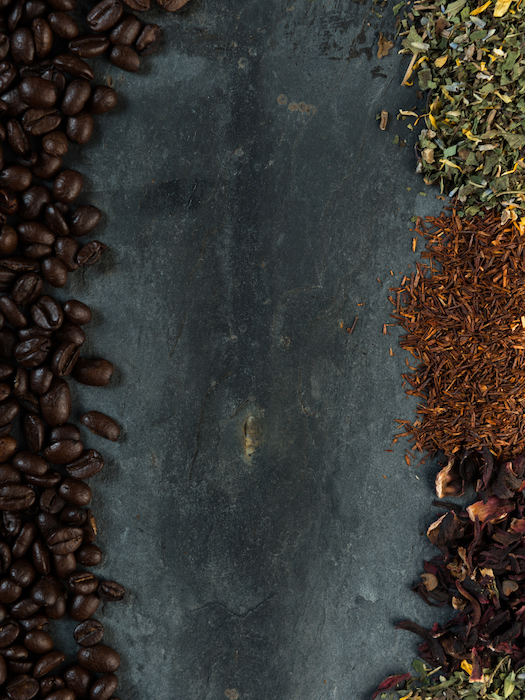
How to make a perfect cup of coffee:
- Start with fresh, cold water.
- Use a good quality coffee bean that has been roasted recently.
- Grind the coffee beans just before brewing.
How to make a perfect cup of tea:
- Start with fresh, cold water.
- Bring the water to a boil and then let it cool for about 30 seconds before pouring it over the tea leaves.
- Use one teaspoon of tea leaves per cup of water.
- Steep the tea for three to five minutes and then add milk or sugar to taste.
Give your tea and coffee a boost…
Personally, I like both tea and coffee.
But in the morning, I can’t go without a cup of joe. I love to drink it on my front porch while the sun comes up and the day begins.
But it’s not just coffee in my cup…
To give my coffee a sweet (but sugar-free) and delicious boost, I add Complete Collagen Plus into it! Not only does Complete Collagen Plus come in an irresistible caramel liquid (that people constantly write to me about and say they look forward to every day!) it provides your body with a healthy dose of collagen that it can actually take in and use.
If you want to see how Complete Collagen Plus helped me, along with what else this all-natural formula contains…
The Top 10 Essential Oils And How They Benefit Your Health
Essential oils are all the rage these days, and for good reason.
These powerful plant compounds have a host of health benefits that can improve everything from your mood to your skin health. In this article, I’ll go over the ten essential oils that you should know about, plus how they benefit your health.
I’ll also discuss what to look for when purchasing an essential oil so that you can be sure you’re getting a quality product.
So, without further ado, here are the top ten essential oils and their benefits:
1. Lavender oil
Lavender oil has been used for centuries to promote relaxation and heal various ailments. The oil is extracted from the lavender plant, which is native to the Mediterranean region. Lavender oil has a fresh, floral aroma that is both calming and uplifting.
The oil contains many different beneficial compounds, including linalool and linalyl acetate, which are thought to contribute to its therapeutic effects. Studies have shown that lavender oil can help reduce anxiety, improve sleep quality, and ease pain. The oil is also effective in treating skin conditions such as acne and eczema. In addition, lavender oil has antibacterial and antifungal properties, making it an ideal natural remedy for treating infections.
There are many ways to use lavender oil, including diffusing it in your home or adding a few drops to your bathtub. You can also apply the oil directly to your skin or add it to lotions and creams. If you’re looking for a natural way to improve your health, consider using lavender oil!
2. Peppermint oil
Peppermint oil is a natural oil extracted from the peppermint plant. It has a refreshing, minty aroma and can be used in a variety of ways.
Peppermint oil is commonly used for its ability to soothe the stomach and aid in digestion. It can also be helpful in relieving headaches, tension, and muscle aches. In addition, peppermint oil has antibacterial and antifungal properties, making it an effective natural cleaning agent. When used topically, peppermint oil can help to cool and refresh the skin. It can also be inhaled to help relieve congestion and promote clear breathing.
Overall, peppermint oil is a versatile oil with many potential health benefits.
3. Tea tree oil
Tea tree oil is most commonly known for its healing properties. The oil, which comes from the leaves of the tea tree plant, has been used for centuries to treat wounds and skin infections.
Tea tree oil contains a compound called terpinen-4-ol, which is an effective antibacterial agent. Studies have shown that tea tree oil can kill a variety of bacteria, including Staphylococcus aureus, a common cause of skin infections. In addition to its antibacterial properties, tea tree oil also has antifungal and anti-inflammatory effects. This makes it an ideal treatment for conditions like athlete’s foot, dandruff, and acne.
Tea tree oil is also a natural insecticide, making it effective against lice and other pests. When used properly, tea tree oil is a safe and effective way to improve your health and well-being.
4. Lemon oil
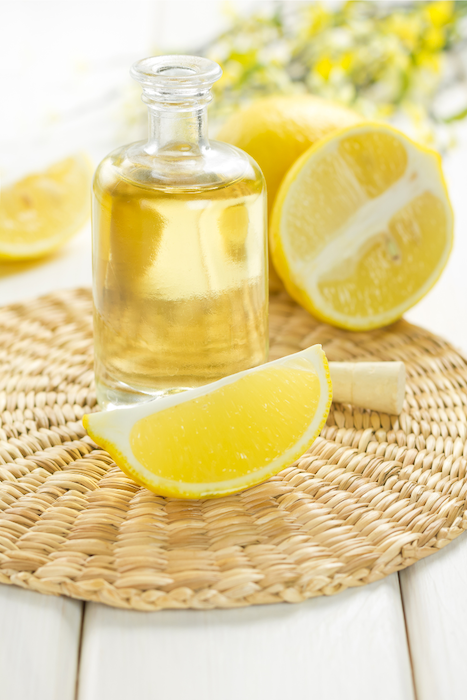
Lemon oil is extracted from the lemon peel and is packed with health benefits. It’s a natural antiseptic and can be used to treat cuts, bruises, and other skin ailments. When diffused, lemon essential oil can help purify the air and boost your mood. Unlike other citrus oils, lemon oil is non-photosensitive, making it safe to use before going out in the sun.
In addition to its uses for skin and home care, tea lemon oil can also aid in digestion and help to fight off infections.
So, whether you’re looking for a natural way to treat skin problems or boost your overall health, lemon oil is a versatile oil that should be a part of your wellness arsenal!
5. Eucalyptus oil
Eucalyptus oil is derived from the leaves of the eucalyptus tree. It has a fresh, minty aroma and is used in a variety of health and beauty products.
Eucalyptus oil has antibacterial, anti-inflammatory, and decongestant properties. It can be used to treat colds and respiratory problems, as well as skin conditions such as acne and eczema. In addition, eucalyptus oil can be used as a natural insect repellent. When diffused into the air, eucalyptus oil can help improve focus and concentration.
There are many ways to enjoy the benefits of eucalyptus oil. You can add a few drops to your lotion or shampoo, diffuser, or bathtub. You can also create your own cleaning solutions and household products with eucalyptus oil. With so many uses, eucalyptus oil is a versatile and affordable way to improve your health and well-being.
6. Rosemary oil
Rosemary oil is an essential oil that is extracted from the leaves of the rosemary plant.
This oil has a wide range of potential health benefits, including improved cognitive function, reduced inflammation, and enhanced hair growth. Tea rosemary oil is also known for its ability to boost the immune system and fight off infection. In addition, this oil has potent anti-inflammatory properties that can help to relieve pain and improve joint health.
When applied topically, tea rosemary oil can also help soothe the skin and promote wound healing. Ultimately, tea rosemary oil is a versatile and powerful oil with a wide range of potential health benefits.
7. Chamomile oil
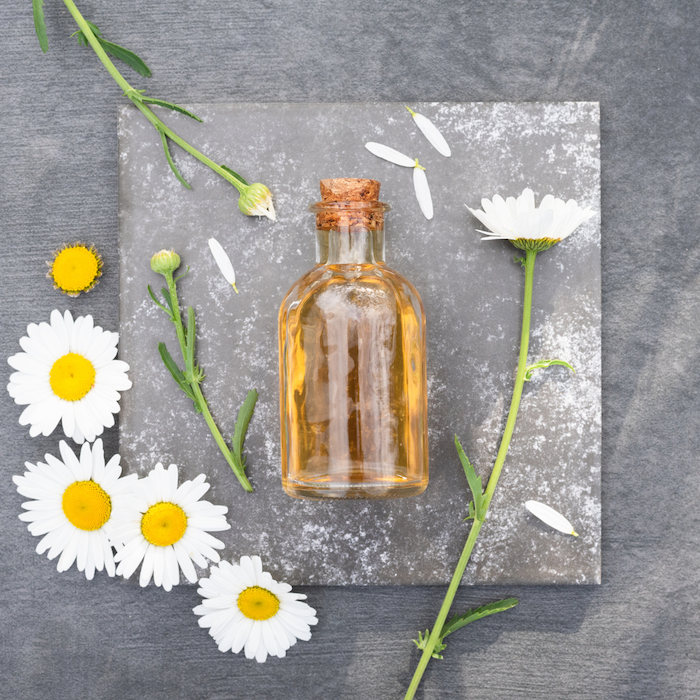
Chamomile doesn’t just make a calming beverage – it also offers a variety of health benefits.
Chamomile oil, in particular, is known for its soothing properties. It can help reduce anxiety and promote relaxation, making it an ideal addition to your bedtime routine. Chamomile oil is also effective in treating skin conditions like eczema and psoriasis. When applied topically, it helps to calm inflammation and soothe dry, irritated skin. In addition, chamomile oil has antimicrobial properties that can help to fight off infection.
Whether you enjoy a cup of chamomile tea before bed or use chamomile oil to treat a skin condition, this natural remedy offers a variety of benefits for your health.
8. Frankincense oil
Frankincense oil is a type of essential oil that is made from the resin of the frankincense tree.
It has a wide range of health benefits, including the ability to improve digestion, reduce inflammation, and boost immune function. Frankincense oil is also known for its anti-aging properties and can help improve skin health and reduce the appearance of wrinkles. In addition, tea frankincense oil has been shown to be effective in reducing stress and anxiety levels.
Overall, tea frankincense oil is another safe and effective way to improve your health and well-being!
9. Cedarwood oil
Cedarwood oil is derived from the leaves and branches of the Cedrus deodara tree, which is native to Nepal and India.
The oil has a warm, woody scent and is used in aromatherapy to help relieve stress and promote relaxation. Tea cedarwood oil is also believed to have medicinal properties and has traditionally been used to treat respiratory conditions such as bronchitis and congestion.
When applied topically, tea cedarwood oil can help to soothe and protect the skin. It’s also sometimes added to shampoo and conditioner formulas to improve scalp health. In addition to its uses in skincare and haircare products, tea cedarwood oil can also be found in perfumes, candles, and diffusers.
Thanks to its versatile nature, tea cedarwood oil can be enjoyed in many different ways.
10. Clove oil
Clove oil is derived from the clove plant, which is native to Indonesia. The oil is extracted from the plant’s leaves and flowers, and it has a strong, spicy aroma.
Tea clove oil has a long history of use in traditional medicine, and it’s said to possess a range of health benefits. For example, it’s often used as a natural remedy for stomach aches and indigestion. Additionally, tea clove oil is thought to boost circulation and help reduce inflammation.
Some studies have also suggested that the oil may have antibacterial and antifungal properties. While more research is needed to confirm these claims, there is no doubt that tea clove oil has a range of benefits for your health!
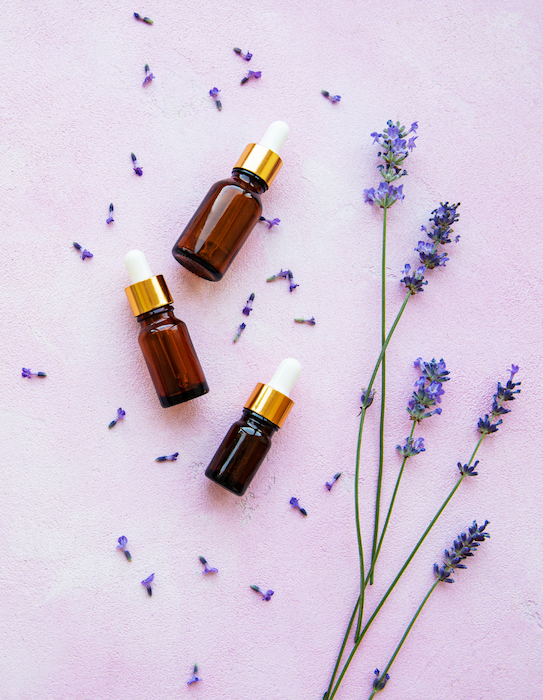
How to choose a quality essential oil
Now that you know the top ten essential oils and their benefits, it’s time to start incorporating them into your life.
There are a few things to keep in mind when purchasing essential oils to ensure you’re getting a quality product.
First, make sure to buy from a reputable source. There are many counterfeit or diluted products on the market, so it’s important to do your research and buy from a trusted seller.
Second, check the label for the country of origin. Essential oils from countries with stringent quality control standards are more likely to be pure and potent.
Third, take a look at the price. Quality essential oils can be expensive, so if you find a deal that seems too good to be true, it probably is.
By keeping these things in mind, you can be sure you’re getting a quality essential oil that will provide all the benefits you’re looking for!
Another way to support overall health…
If you’re looking for an easy (and delicious) way to boost your overall health, you NEED to try a form of biotin that your body can actually take in and use.
To learn how biotin can support your health, along with how it help me…
The 11 Most Toxic Cosmetic Ingredients And Why You Should Avoid Them
The average woman uses over 12 products on her face and body every day. Unfortunately, many of these products contain harmful chemicals that can damage your health. In this article, I’ll go over the 11 most toxic ingredients found in cosmetics and why you should avoid them.
Next time you’re shopping for beauty products, make sure to read the labels carefully and look out for any of the following…
1. Parabens
Parabens are a type of preservative used in cosmetics and personal care products. They’re commonly found in shampoos, conditioners, deodorants, and lotions. While they are effective at preventing the growth of bacteria and mold, they have come under fire in recent years due to their potential health risks.
Parabens have been shown to mimic the hormone estrogen, which can disrupt the normal function of the endocrine system. Additionally, they have been linked to an increased risk of breast cancer. As a result, many companies are now choosing to avoid using parabens in their products.
While more research is needed to confirm the exact risks of parabens, it’s clear that they may not be safe for use, and it’s best to err on the side of caution when it comes to our health. Choose paraben-free products whenever possible, and look for natural alternatives that will still keep your products fresh and free from harmful bacteria.
2. Phthalates
Phthalates are a family of chemicals often used in plastics and personal care products. While they can provide some desirable properties, such as increased flexibility and durability, they also come with some significant health risks.
Studies have linked phthalates to hormone disruption, reproductive problems, birth defects, and even cancer. Because of their pervasive presence in our environment, it’s important to be aware of the risks they pose to our health and take steps to avoid them where possible.
Fortunately, there are a growing number of phthalate-free products available on the market, so we can all make choices that help protect our health and the environment.
3. Formaldehyde
Formaldehyde is a chemical compound that is commonly used in a variety of household and industrial products, from glues and adhesives to pressed-wood products and fabrics. It is also used as a preservative in some cosmetics and personal-care products, such as shampoo, lotion, and nail polish.
While formaldehyde can be effective at preserving these products, it can also be harmful to our health.
Exposure to formaldehyde has been linked to a variety of health problems, including cancer, respiratory problems, and skin irritation. As a result, it’s important to be aware of the products that contain formaldehyde and take steps to avoid them.
When shopping for cosmetics and personal-care products, look for those that are labeled “formaldehyde-free.” And if you are using any products that contain formaldehyde, be sure to follow the manufacturer’s instructions for safe use. By taking these precautions, you can help protect yourself from the harmful effects of this chemical compound.
4. Lead
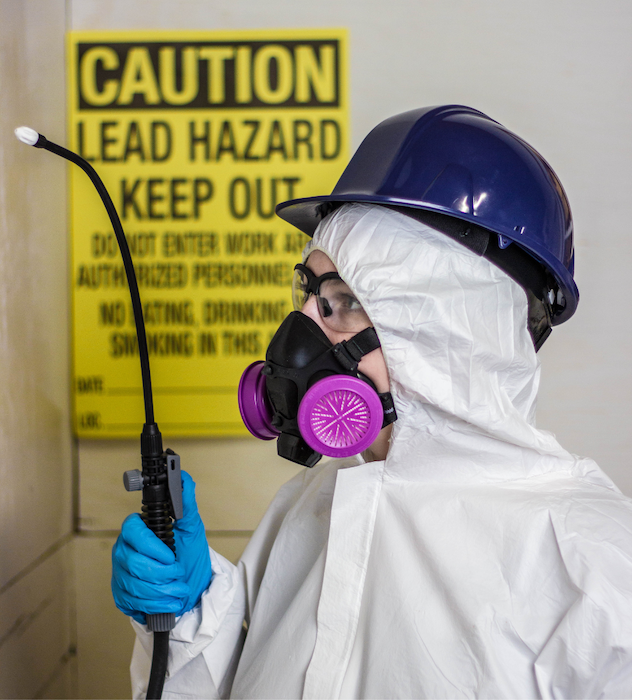
Lead is a heavy metal that is found naturally in the environment. Though it has some uses, it is also toxic to humans and can cause a range of health problems. For this reason, it’s important to avoid exposure to lead, especially for children and pregnant women.
One way to exposure is through cosmetics that contain lead. Though the amount of lead in cosmetics is regulated, there’s a risk that it can still build up in the body over time and cause health problems.
Lead exposure has been linked to developmental delays, learning difficulties, and behavioral problems in children. It can also cause miscarriage, premature birth, and low birth weight in pregnant women. In adults, lead exposure can cause high blood pressure, kidney damage, and fertility problems.
Choose cosmetics that are free of lead and other harmful ingredients so that you can help protect your health and the health of future generations.
5. Mercury
Mercury is a naturally occurring element that is found in air, water, and soil. While small amounts of mercury are not harmful, exposure to high levels can cause serious health problems.
Mercury can be absorbed through the skin, inhaled or ingested, and it can build up in the body over time. Mercury poisoning can cause neurological problems, including memory loss, tremors, and paralysis. It can also damage the kidneys and lungs. Pregnant women and young children are particularly vulnerable to the effects of mercury poisoning.
For these reasons, it’s important to avoid using cosmetics that contain mercury. While some countries have banned the use of mercury in cosmetics, unfortunately it is still used in many products sold around the world.
When buying cosmetics, always check the ingredient list to make sure that mercury is not included. By taking this simple step, you can help protect yourself and your family from the harmful effects of this toxic element.
6. Aluminum
Aluminum is everywhere – from pop cans to aluminum foil to cookware. It’s even in our cosmetics. But despite its prevalence, aluminum is actually bad for our health.
Studies have linked aluminum exposure to Alzheimer’s disease, breast cancer, and developmental delays in children.
So why is it still so prevalent in our lives? One reason is that aluminum is cheap and easy to produce. However, the health risks simply outweigh the benefits. That’s why we should avoid using products with aluminum, especially those that come into contact with our skin. Although it may be convenient, it’s simply not worth the risk.
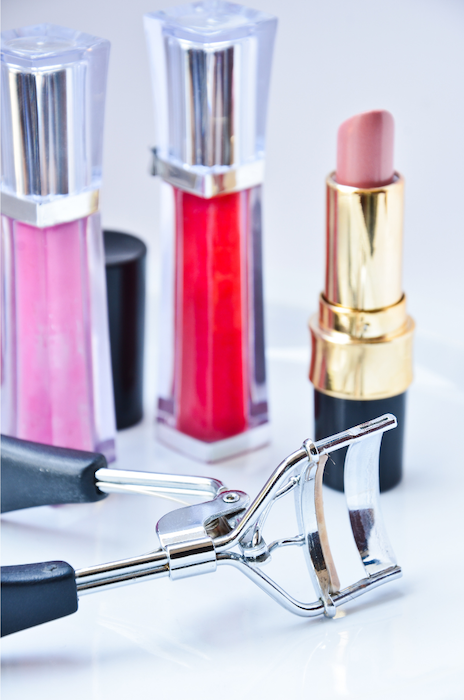
7. Paraffin
Paraffin is a type of petroleum product, and it’s often used as a base for cosmetics like lotion and lip balm. However, there are some potential risks associated with using products that contain paraffin.
When applied to the skin, paraffin can block pores and prevent the skin from breathing. In addition, paraffin is a known carcinogen, and it has been linked to developmental problems in fetuses and young children.
For these reasons, it’s best to avoid products that contain paraffin. Instead, opt for cosmetics that use more natural ingredients. Your skin will thank you for it!
8. Talc
Talc is a naturally occurring mineral that is often used in cosmetic products such as powder, blush, and eyeshadow. While it may provide a smooth, matte finish, talc can also be harmful to our health.
When inhaled, talc particles can damage the lungs and cause respiratory problems. In addition, talc has been linked to ovarian cancer and other serious health conditions.
Thankfully, there are many safe and healthy talc-free alternatives available, so there is no need to take risks with our health. By making smart choices about the products we use, we can help protect ourselves and our families from harm.
9. Toluene
Toluene is a colorless, flammable liquid that is derived from petroleum. It has a wide range of uses, from being an ingredient in paint thinners to serving as a fuel for race cars. Toluene is also found in a variety of cosmetics, including nail polish, hair dyes, and perfumes. But it can actually be quite harmful to our health.
Studies have shown that exposure to toluene can lead to respiratory problems, skin irritation, and even nervous system damage. In addition, toluene is classified as a carcinogen by the International Agency for Research on Cancer. As such, it’s best to avoid products that contain toluene, and instead choose cosmetics that are safe for our health.
10. Triclosan
There’s a good chance you’ve heard of triclosan. It’s an antimicrobial chemical that’s used in all sorts of products, from soaps and toothpastes to cosmetics and even some furniture. And while it may sound like a good idea to use a product that contains an antimicrobial chemical, there’s actually growing evidence that triclosan is bad for our health.
Research has shown that triclosan can disrupt hormones, harm the immune system, and increase the risk of antibiotic resistance. And because it’s so widely used, we’re being exposed to triclosan on a daily basis.
So what can we do to avoid it? Well, first of all, we can check the labels of the products we use and make sure they don’t contain triclosan. And second, we can support companies that are making an effort to avoid using this harmful chemical in their products.
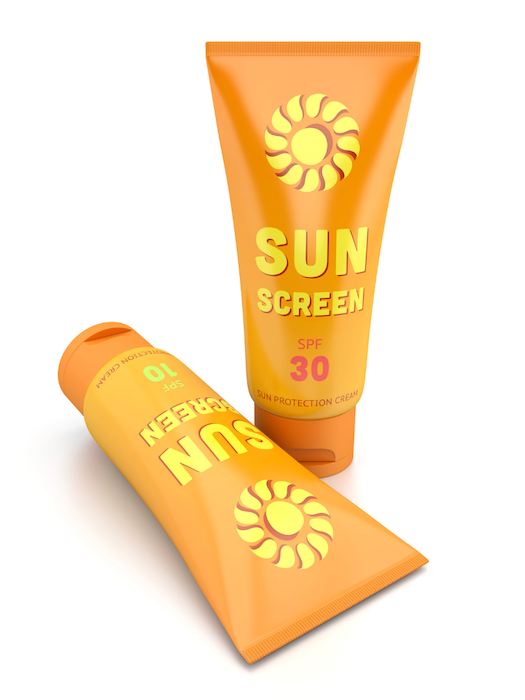
11. Oxybenzone
Oxybenzone is a common ingredient in sunscreen and other cosmetics. Unlike ingredients in some sunscreens that reflect UV light, oxybenzone absorbs the sun’s rays. This is why it’s used in products that are meant to protect our skin from the sun.
However, oxybenzone is also a potential hormone disruptor. That means it can interfere with the way our bodies produce and regulate hormones. Oxybenzone has been linked to endometriosis in women, lower sperm count in men, and early puberty in girls. In addition, oxybenzone is considered a possible carcinogen. It’s important to note that the evidence for these health effects is still preliminary. But given the potential risks involved, it’s best to avoid products that contain oxybenzone.
There are plenty of safe and effective sunscreens on the market that don’t use this ingredient. So why take the chance? Protect your health by choosing cosmetics wisely!
The bottom line
These are just a few of the most toxic ingredients found in cosmetics. Remember, when it comes to your beauty routine, less is more. Choose products that contain fewer ingredients and avoid those that contain any of the ingredients on this list. Your skin will thank you for it!
I don’t share this information with you to scare you, but so you can be aware of what’s out there. If you use a product with one of these ingredients occasionally and sparingly, chances are your health won’t be negatively affected. But if you’re using a product everyday, you don’t want to be giving yourself constant exposure.
But here’s the truth…
Whether it’s in our cosmetics, furniture, food, or even the air outside – harmful compounds like these are almost impossible to avoid.
Even some of the ones listed in today’s article are present in items you encounter daily. Sadly, in our modern world, toxins like these are just seen as normal. So, it’s up to you to protect yourself.
Your body has a built-in compound that’s meant to counter chemicals like these and the effects they can cause. It’s why nearly every disease is associated with low levels of it!
But unfortunately, as we age, our body has trouble making it.
If you don’t already…
You should really know about this toxin-fighting compound.
The Top 9 Benefits of Eating Tomatoes
If you love tomatoes like I do, then you’re in for a real treat! In this article, I’ll discuss the top 9 benefits of eating tomatoes. Believe it or not, these little red fruits are packed with many nutrients that your body needs to stay healthy. So, whether you’re enjoying them in a salad or cooked into a dish, make sure to eat plenty of tomatoes every day!
Here are the top 9 benefits of eating tomatoes:
1. Tomatoes are a great source of vitamins and minerals
Tomatoes are a delicious and nutritious fruit that is packed with vitamins and minerals.
One of the most important nutrients found in tomatoes is lycopene, an antioxidant that has been linked to a reduced risk of heart disease and cancer. Lycopene is also responsible for giving tomatoes their red color, so the brighter the tomato, the higher its lycopene content. And as you read on, you’ll learn why you want as much of this antioxidant as possible!
In addition to lycopene, tomatoes are especially high in vitamin C, which is essential for a healthy immune system. They also contain vitamins A and K, as well as potassium and magnesium. So next time you’re looking for a nutritious snack, reach for a juicy tomato!
2. Tomatoes are good for your heart health
Tomatoes are low in saturated fat and cholesterol, and high in fiber and antioxidants, making them a heart-healthy snack.
Additionally, the lycopene in tomatoes has been shown to lower LDL cholesterol and protect against heart disease. The vitamins A and C help to keep blood vessels strong and prevent the formation of plaque while the high potassium content helps regulate blood pressure.
3. Tomatoes can help to regulate blood sugar levels

One reason tomatoes can help regulate blood sugar is due to their high content of chromium, which helps the body to process insulin more efficiently.
Tomatoes are also a low-glycemic food, which means that they don’t cause a sudden spike in blood sugar levels after eating. Instead, they help to slowly release glucose into the bloodstream, providing a steady source of energy. This is especially beneficial for people with diabetes, who often have trouble regulating their blood sugar levels.
Eating tomatoes on a regular basis can help to keep blood sugar levels under control and prevent dangerous spikes. So if you’re looking for a way to regulate your blood sugar levels, add some tomatoes to your diet.
4. Tomatoes are beneficial for your skin health
Tomatoes are also good for your skin! The lycopene in tomatoes can help protect your skin from damage caused by the sun and pollution. A powerful antioxidant, lycopene fights free radicals and helps keep your skin looking young and healthy.
Tomatoes can also help reduce inflammation and improve your skin’s ability to retain moisture. If you are looking for a natural way to improve your skin health, add some tomatoes to your diet!
5. Tomatoes can help to reduce the risk of some types of cancer
This is once again thanks to tomato’s lycopene content, which is known to have anti-cancer properties.
Studies have shown that lycopene can help reduce the risk of prostate and breast cancer. Additionally, lycopene is thought to boost the immune system which can help stave off disease.
While more research is needed, there is evidence that incorporating tomatoes into your diet may help to reduce the risk of some types of cancer. So eat up!
6. Tomatoes are good for your digestive health
Tomatoes are rich in fiber and antioxidants, both of which play an important role in keeping your digestive system functioning properly. Fiber helps keep your digestive system healthy and functioning properly, while antioxidants help to reduce inflammation and protect the lining of the gastrointestinal tract.
In addition, lycopene has been shown to promote gut health.
So next time you’re looking for a tasty way to boost your digestive health, reach for some tomatoes!
7. Tomatoes can help to boost your immune system

Snacking on tomatoes can also help to keep you from getting sick. This nutritional powerhouse is packed with vitamins and minerals that can help boost your immune system, including vitamin C, beta-carotene, and lycopene.
Vitamin C is a well-known immune-booster, and tomatoes are one of the best sources of this essential nutrient. Beta-carotene has also been shown to support immune function, and tomatoes are an excellent source of this compound. Not to mention, lycopene has also been shown to support immunity.
8. Tomatoes are good for your bone health
Once more, lycopene to the rescue. This antioxidant has been shown to help prevent bone loss. It’s especially beneficial for postmenopausal women, who are at increased risk for osteoporosis.
But it’s not just lycopene that makes tomatoes good for your bones. Tomatoes are also a source of vitamin K, which is essential for the production of osteocalcin, a protein that helps to keep bones strong. They are also a good source of calcium, which is essential for strong and healthy bones.
So make sure to add some tomatoes to your diet if you want to keep your bones healthy and strong!
9. Tomatoes can help reduce the risk of some types of birth defects
Studies have shown that tomatoes can help to reduce the risk of some types of birth defects. The lycopene in tomatoes is thought to be responsible for this effect, as this powerful antioxidant has been shown to protect cells from damage.
Their high content of folic acid, which is essential for the development of the neural tube in a developing baby, is also a contributing factor.
Eating tomatoes regularly can help to improve your overall health and well-being. So make sure to include them in your diet every day! Thanks for reading and I hope this article was helpful.
Another way to get many of these benefits…
As you can see, several of tomato’s benefits come from its high vitamin C content. But even though vitamin C has a long list of health benefits, sometimes it can be difficult for your body to fully absorb the nutrient through food.
If you want to ensure you’re getting ample vitamin C every day that your body can actually take in and use, then I know just the people.
My friends over at Purality Health use the same micelle liposomal formula that EverBella uses. This means that you can be confident that you’re getting the most out of each dose!
If you want to learn the many ways that vitamin C can support your health (I think you’ll be surprised at just how much it does)…
